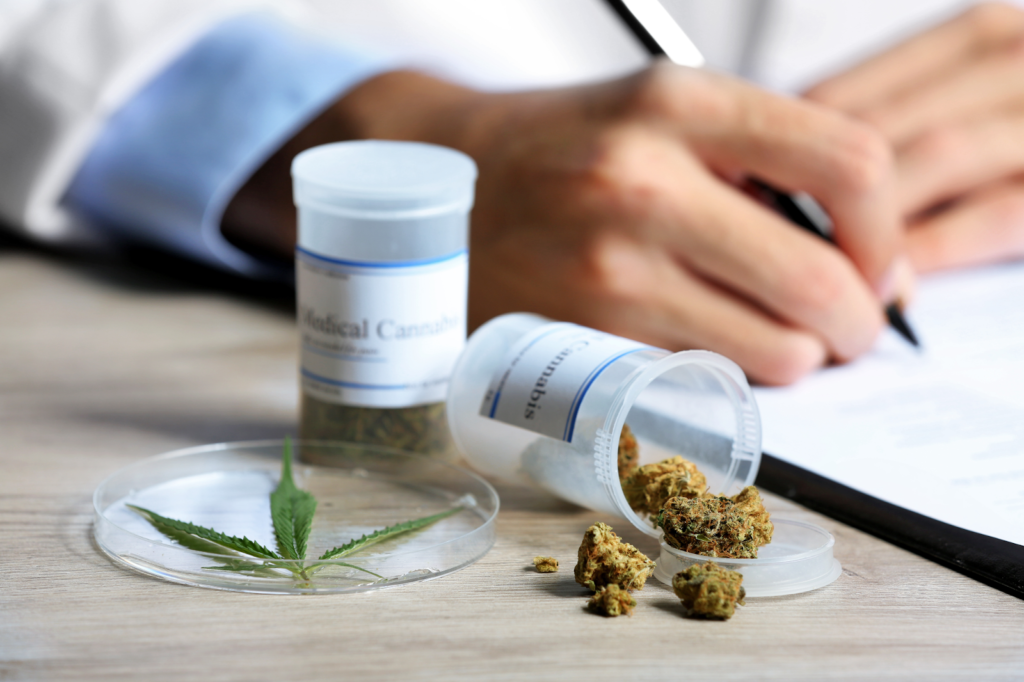In states that have legalized medical marijuana, physicians can recommend patients to use the drug. Patients who obtain this recommendation will have a medical card that allows them to purchase and possess cannabis within certain limits.
Legalities of Getting Medical Marijuana:
The risk of criminal prosecution and loss of license for physicians who make such recommendations is minimal.
Legality
While medical marijuana has been legalized in several states, it is still illegal under federal law. This means that anyone who crosses state lines with medical marijuana could face serious criminal charges. Fortunately, many attorneys specialize in cannabis law and have experience representing clients facing these types of cases.
To get medical marijuana in Louisiana, you must first be certified by a physician as having one of the conditions for which it is used. The doctor must then submit a request to the state. The process varies by state, but most will allow you to sign up online and provide proof of your condition. Some will even allow you to select a caregiver.
Physicians are reluctant to recommend marijuana because of its status as a Schedule I drug under federal law. As a result, they can risk having their DEA licenses revoked. However, a few states have passed laws that allow physicians to “recommend” rather than prescribe marijuana, which would violate federal law.
The physician can then recommend that a patient receives cannabis at a dispensary. The registered organization will then report the dispensing information to the state registry. It also will allow a designated caregiver, an employee of the facility, or a patient’s family member to administer the approved medication to the patient.
Requirements
In most states, you must visit a registered doctor to certify patients for medical marijuana. This person will discuss your condition and determine if it qualifies. You may have to pay a fee to receive the certification. The fee varies by state. The doctor will then issue you a card that you can use to purchase marijuana from approved dispensaries. Some states also allow you to grow marijuana plants for personal use.
The certifying healthcare provider must document the recommended dosage, which limits the amount of marijuana that can be possessed or consumed at a given time. This limit determines a patient’s 60-day supply of cannabis, which can be purchased at registered organizations in forms including but not limited to vape cartridges, capsules, tablets, oils, edibles, and sprays. Healthcare providers may also limit dosing recommendations and issue a certification for a specific date that is less than a year.
To open your cannabis facility, you must submit fingerprints for a criminal background check. The Department of Health will review the results to ensure the applicant has no felony convictions. This process will also include a site visit to ensure the facility meets standards.
Dispensaries
As medical marijuana is legalized in more states, finding dispensaries is becoming more accessible. These cannabis stores offer various products for sale to people with qualifying conditions. In addition, most dispensaries also provide helpful tips and information about the different products available. They are known for creating a safe and positive buying experience.
Dispensaries are often run by independent operators regulated by the state’s medical cannabis program. They must meet state requirements, including security and safety standards. In addition, they must have a dispensary manager on staff trained to assist patients and caregivers.
Medical marijuana can only be purchased at a dispensary with a valid ID card or recommendation from a doctor. The ID card must be valid in the patient’s state and contain a registry ID number. It is important to note that the list of qualifying medical conditions varies from state to state.
Since federal law considers marijuana an illegal substance, it’s been difficult for physicians to write recommendations for it. However, there are some ways that doctors can avoid putting their licenses at risk by complying with state laws and avoiding any illegal activity. For example, they can offer risk-free evaluations to determine whether the medication suits a patient.
Certification
Before legally obtaining medical marijuana, you must be certified by a registered physician. Once your doctor approves you, the state will send you a letter with your registry ID number. You must present this card and a valid government-issued ID at any registered dispensary.
To be eligible for a recommendation, you must have a debilitating medical condition not significantly responsive to traditional treatment, PTSD; autism; chronic pain resistant to conventional treatments; and a terminal illness with a projected life expectancy of less than six months.
While medical marijuana is legal in most states, doctors who recommend it face some legal risks. Depending on how they do so, they could be sued for malpractice. However, a recent court ruling has made this risk less severe. It was ruled that the First Amendment protects physicians who discuss the benefits of marijuana with their patients.



